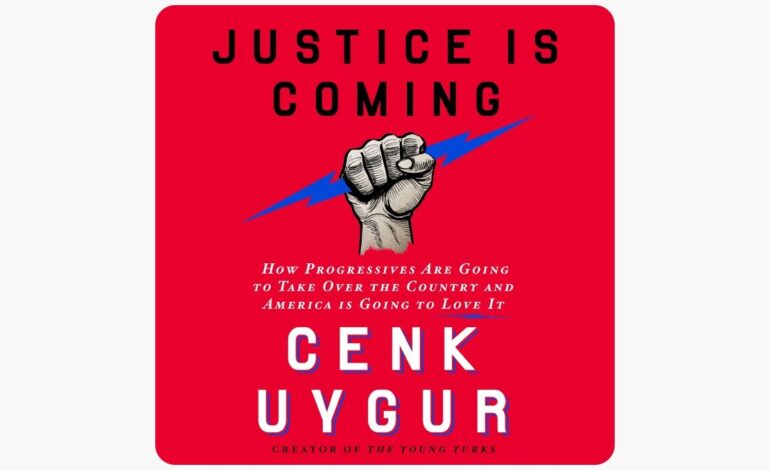Cenk Uygur’s Stark Warning: Extremism Isn’t “Just Politics” and Why It Should Scare Everyone

نج: Sage Matthews here, and yes, another late-night moral sermon in the year of our discontent. This time the never-ending doomscroll gives us Cenk Uygur, the co-founder of Justice Democrats, stepping into TMZ Live to condemn political violence on both the left and the right. It’s the kind of message that feels almost quaint in a world where extremism wears more masks than a Halloween party and where every hot take seems to morph into a call for action you wish you could unread.
Uygur sits on a couch with a calm that only looks heroic because the stakes feel apocalyptic. He addresses the Charlie Kirk incident, acknowledging that a single violent act can distort an entire movement’s image, and he insists that politics should remain a civil arena even when disagreement burns hot. The interview is framed not as a partisan slam but as a cautionary tale: don’t let the fringes define the whole movement, and don’t mistake a heated debate for a license to celebrate violence. It’s a tall order in a year when every outrage is monetized, but he tries to thread the needle with a straight face and the occasional sigh that sounds suspiciously like resignation to the state of discourse.
What does Uygur actually argue beyond the moral gut punch? He notes that most people on both sides aren’t extremists and that violent acts by a few should not be the marquee representative of millions of voters or supporters. Still, he concedes the fringes appear to be growing — not exponentially, perhaps, but in a way that makes the political climate feel increasingly combustible. He pushes back against a narrative that paints entire sides as monoliths tied to violence, insisting that one violent act by an outlier should not redefine the entire spectrum of opinion. It’s a familiar plea in a world where nuance is an endangered species and where public figures often weaponize nuance into a cudgel against the other side.
The interview doesn’t just rest on the sanctity of civility. Uygur touches on contemporary flashpoints, including President Trump and the reaction from both left-wing and right-wing factions. The intent is to dig into the psychology of division: when anger and outrage are treated as currency, it becomes easy to overlook a much more dangerous trend — the normalization of hostility as a political tool. The “American way” rhetoric becomes a bargaining chip: it’s about preserving a democratic process, not about preserving the ability to have a sane conversation with your neighbor who voted differently.
From a doomscrolling pessimist’s vantage point, the interview lands like a rare moment of self-awareness inside a culture of performative outrage. Uygur’s central claim is simple, almost existential: you cannot promote political violence and call it patriotism, not in a country that still pretends to prize speech while quietly eroding its norms. He attempts to strike a balance between condemning violence and recognizing the real danger of a polarized ecosystem that rewards sensationalism more than reason. The strategic question, then, is how to translate this into practical behavior — how to disagree without turning disagreement into an arms race.
For viewers, the takeaway is as much about personal conduct as it is about public policy. Uygur argues for civility, for the recognition that a person’s political identity isn’t a green light for demagoguery. He cites how even small acts, like sharing incendiary content without context, contribute to an atmosphere where violence becomes a rhetorical option. The interview closes by reframing the problem: extremism isn’t a distant threat; it’s a creeping toxin that erodes norms and makes the “American way” increasingly fragile. He urges a return to measured dialogue, to temper, to the boring but essential work of listening to dissent without turning it into a spectacle.
In short, the TMZ Live moment becomes a micro-lesson in democratic sanity: acknowledge the danger, reject the thrill of the outrage cycle, and insist that disagreement does not equal violence. It’s a sobering reminder that civility isn’t a retreat from politics, but a precondition for politics that doesn’t collapse into chaos. And whether the fringes shrink or just shrink into the shadows, the question remains: can anyone pull the plug on the hype long enough to save a few inches of civil conversation?
Anyway, can we pretend to be surprised when the next incendiary clip drops? Probably not. But perhaps we can hold onto the stubborn, grating belief that something resembling a sane public square is possible, even if it feels like a sinking ship. What to watch next: will louder voices triumph over quiet, stubborn civility, or will a flicker of reason survive the next barrage of outrage?
Attribution: Creative Commons Licensed (GO)




